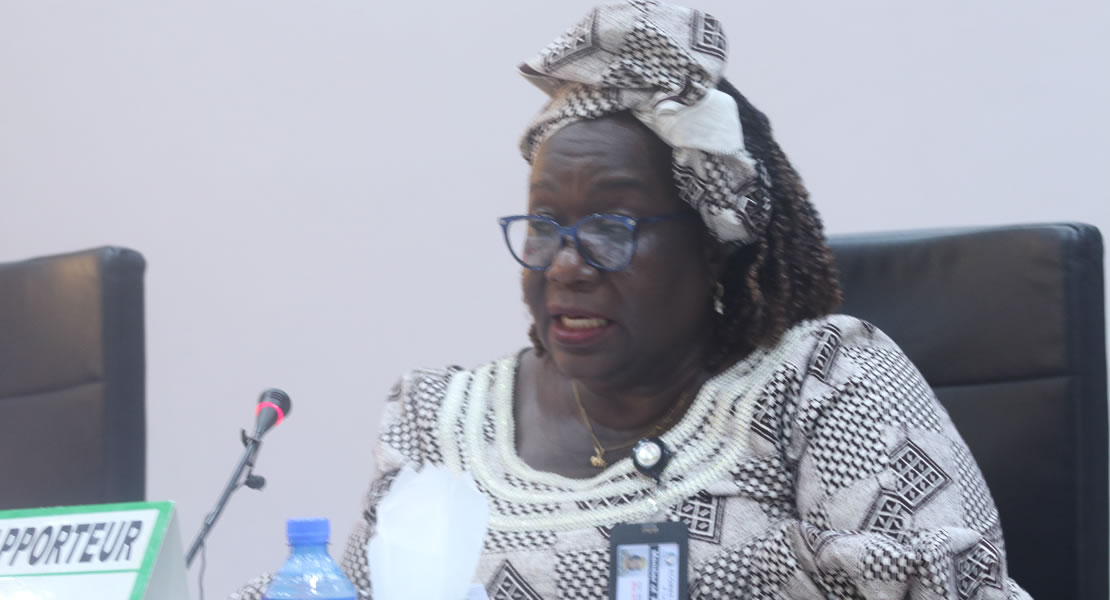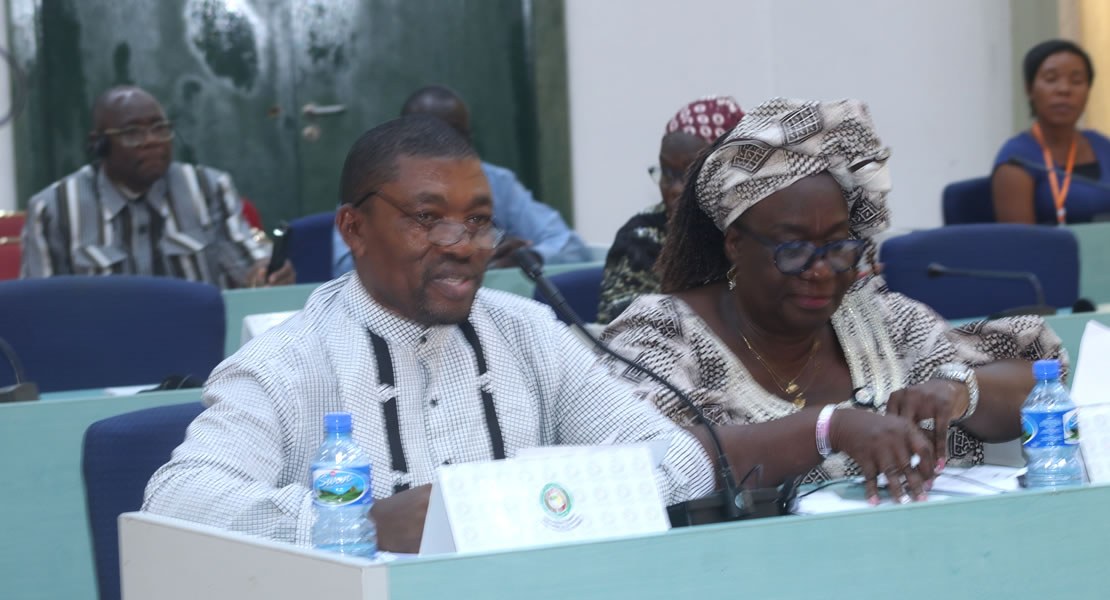
The only female among the sierra Leonean delegation to the Economic Community of West African States (ECOWAS) Parliament, Veronica Kadie Sesay has said less than twenty (20) percent of females occupy elected positions in her country.
Despite the fact that women account for fifty-one (51) percent of the total population, their voice, visibility, participation and representation in elective and appointive position remains very low compared to the men.
 She made this known on Saturday, December 3, 2022 when she presented the Country report of her country at the plenary at the ongoing Second Ordinary Session of the Community Parliament in Abuja Nigeria.
She made this known on Saturday, December 3, 2022 when she presented the Country report of her country at the plenary at the ongoing Second Ordinary Session of the Community Parliament in Abuja Nigeria.
The challenges faced by women are many and include lack of economic independence, high illiteracy and entrenched customs and traditions, political violence and reprisals, the absence of progressive laws that protect and promote participation of women, and the lack of confidence to vie for public positions.
Gender representation is relatively low in Sierra Leone as in the rest of West Africa. Sierra Leone was ranked 182nd out of 189 countries on the UNDP’s Gender Development Index in 2020, and nearly half of the bottom 20 countries were in West Africa.
Today, 18 out of 146 (12%) MPs in Sierra Leone’s Parliament are women while only four women serve in a Cabinet of 32 Ministers. The four Ministers head the gender, tourism, marine and social welfare ministries.
The President, His Excellency Dr. Julius Maada Bio, in his stance for an affirmative action for female representation, has been constantly giving support to the Gender Empowerment Bill, which was enacted on the 11th of November 2022.
Also, the Gender Equality and Women’s Empowerment Act, 2022 seeks to address gender imbalances by making provision for increased elective positions for women, the promotion of gender equality in employment and training, the implementation of gender mainstreaming and budgeting, for access to financial institutions and to prescribe procedures for the improvement of women’s access to finance.
The Public Elections Act 2022, which was also recently passed into law, provides for a woman to be among every three candidates to be presented by political parties for election to Parliament or Local Council. Both the Gender Empowerment law and the Public Elections Act, 2022 will strengthen, enhance and improve women’s participation and representation in Parliament and the Local Councils.
Kwaku Sakyi-Danso/Ghanamps.com